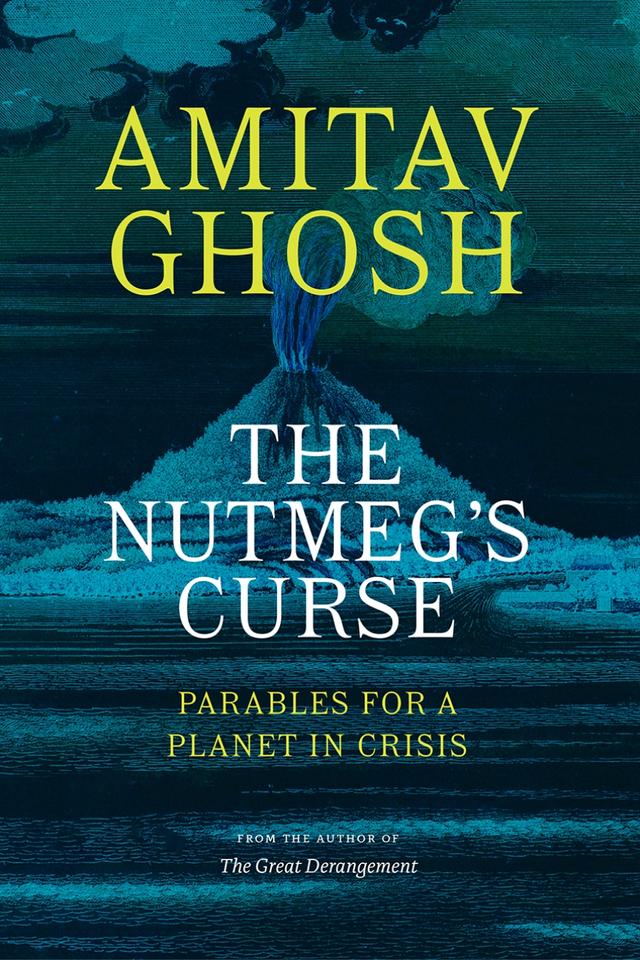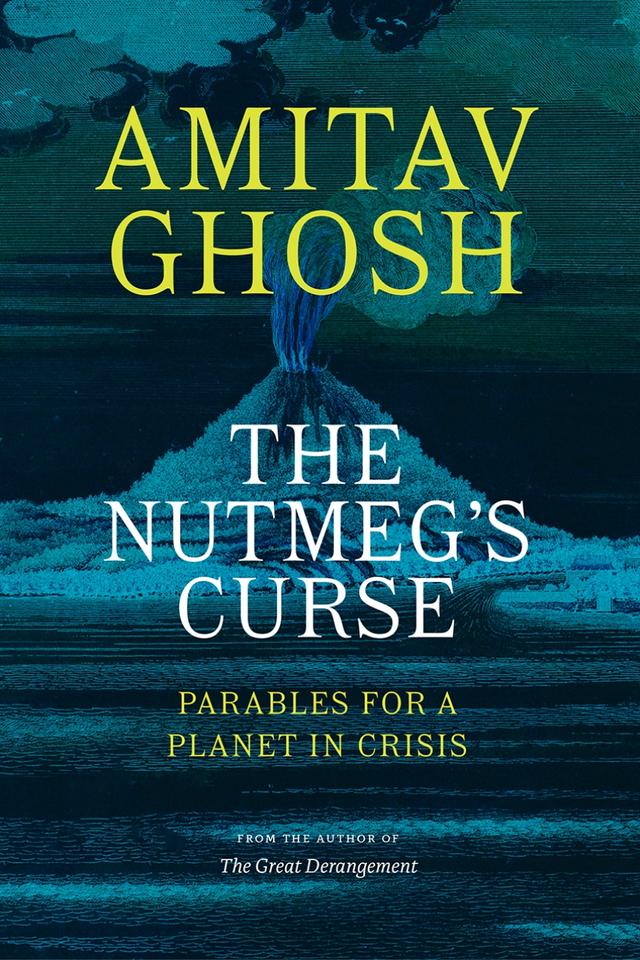By Joydeep Gupta | –
( The Third Pole) – In his latest book, Amitav Ghosh identifies the beginning of the climate crisis as the point where total exploitation – of both lands and people – became the prevailing mode of growth in the world economy
I did not ‘like’ The Nutmeg’s Curse by Amitav Ghosh. I have a strong suspicion that he did not write it for ‘likes’. He challenges every shibboleth of establishment ‘wisdom’, every prevailing paradigm, because he wants to make us think outside our comfort zones. He has succeeded.

Nutmeg seeds are harvested in North Maluku province in Indonesia. The nutmeg tree is native to the Maluku Islands or Moluccas; the issues raised by its colonial history are a central theme of ‘The Nutmeg’s Curse’ by Amitav Ghosh [Click here].
The biggest challenge Ghosh throws down is to the prevailing understanding of when the climate crisis started. Most of us have accepted – without thinking about it ourselves – that it started with the widespread use of coal at the beginning of the Industrial Age in the 18th century and worsened with the mass adoption of oil and natural gas in the 20th.
Global exploitation and human exploitation
Ghosh takes this history at least three centuries back, to the start of European colonialism in the 15th century. He makes this point most tellingly by starting the book with a 1621 massacre by Dutch invaders determined to impose a monopoly on nutmeg cultivation and trade in the Banda islands in today’s Indonesia. Not only do the Dutch systematically depopulate the islands through genocide, they also try their best to bring nutmeg cultivation into plantation mode.
These are the two points to which Ghosh returns through examples from around the world. One, how European colonialists decimated not only indigenous populations but also indigenous understanding of the relationship between humans and Earth. Two, how this was an invasion not only of humans but of the Earth itself, and how this continues to the present day by looking at nature as a ‘resource’ to exploit.
Ghosh is known for the depth and breadth of research he brings into his works. But through his plotting, he has kept his research largely as a backdrop in earlier books. Not so in The Nutmeg’s Curse. This is essentially a 257-page normative essay, followed by 35 pages of notes and a 29-page bibliography. It does not make for a quick or easy read. But it does make you rethink what is going on around you, from the dawn of European colonial conquests to the ongoing Covid-19 pandemic.
The nutmeg’s long curse
We know we are facing more frequent and more severe heatwaves, storms, floods, droughts and wildfires due to climate change. We know our expansion through deforestation, dam building, canal cutting – in short, terraforming, the word Ghosh uses – has brought us repeated disasters, of which Covid-19 is only the latest manifestation. Are these the responses of an angry Gaia who has finally had enough? By using the word ‘curse’ in the title, the author makes it clear that he thinks so.
I use the pronoun ‘who’ knowingly, because Ghosh has quoted many non-European sources to enquire into the relationship between humans and the world around them so that he can question the prevalent way of looking at Earth as an inert object to be exploited to the maximum.
RecommendedOpinion: Indigenous understanding of Salween River key for biodiversity
As Ghosh’s text, notes and bibliography show once more, none of this is new. There have always been challenges to the way European colonialists looked at other civilisations and at Earth. It is just that the invaders and their myriad backers in the fields of economics, politics, anthropology, philosophy, literature, technology, physics, chemistry, biology have dominated global intellectual discourse.
Ghosh illustrates his argument about how only certain points of view have dominated by quoting Francis Bacon, the English author, philosopher and statesman, providing justification for genocide in the 1620s by calling it a “holy war”; and 19th-century English poet Alfred Tennyson describing man as “the herald of a higher race” who should “move upward, working out the beast / and let the ape and tiger die”.
There are other viewpoints
There are other points of view that we can hear today if we listen hard enough. Those observing global climate negotiations know about the Latin American way of looking at Earth as Pachamama (Earth Mother). They also know how such a framing is just provided lip service and is ignored in the substantive portions of the negotiations.
In The Nutmeg’s Curse, Ghosh explains why. He shows the extent of the vested interest in the oil economy – not only for oil-exporting countries, but also for a superpower like the US that controls oil drilling, oil prices and oil movement around the world. Many of us know power utilities are sabotaging decentralised solar power generation today because it hits their revenues and control. And how the other points of view are so often drowned out.
Not just the old colonialists
Ghosh’s success is in bringing these other voices together to throw open the challenge anew, to call for a paradigm change and to situate it in today’s world. But here is the biggest gap in the book. Ghosh does challenge the way rulers around the developing world are following the same extractive model as the European colonisers. But he does not expand this point enough. Most of his ire is reserved for European colonisers and their successors in the Americas. He is on solid ground there, but the book should have devoted more space to illustrate how the ruling elites in just about every large and most small developing countries are doing the same today.
The Nutmeg’s Curse expands the climate and other crises in both time and space. By doing so, it has the potential to change the direction of many academic disciplines, not to mention policymaking. But a purely doom-and-gloom book may be ignored as one more in the genre, though far more erudite and far better written than others.
Ghosh rescues his essay from that pitfall by pointing to rays of hope; to an alternate model of development, from the ashrams of Mahatma Gandhi, the Occupy movement and Greta Thunberg to Black Lives Matter. By doing so Ghosh moves to address an audience that is not only interested in history, geography and literature, but also in our common survival.
Joydeep Gupta is South Asia Director of The Third Pole
Via The Third Pole
Creative Commons Attribution-NonCommercial-NoDerivatives 4.0 International (CC BY NC ND) licence.



 © 2026 All Rights Reserved
© 2026 All Rights Reserved